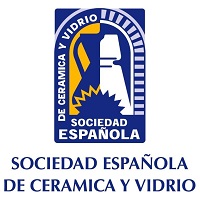was read the article
| Year/Month | Html | Total | |
|---|---|---|---|
| 2024 December | 23 | 6 | 29 |
| 2024 November | 19 | 5 | 24 |
| 2024 October | 18 | 11 | 29 |
| 2024 September | 25 | 14 | 39 |
| 2024 August | 23 | 21 | 44 |
| 2024 July | 18 | 6 | 24 |
| 2024 June | 19 | 6 | 25 |
| 2024 May | 31 | 5 | 36 |
| 2024 April | 41 | 9 | 50 |
| 2024 March | 38 | 8 | 46 |
| 2024 February | 18 | 4 | 22 |
| 2024 January | 12 | 7 | 19 |
| 2023 December | 21 | 11 | 32 |
| 2023 November | 33 | 8 | 41 |
| 2023 October | 33 | 6 | 39 |
| 2023 September | 22 | 0 | 22 |
| 2023 August | 15 | 4 | 19 |
| 2023 July | 24 | 3 | 27 |
| 2023 June | 21 | 1 | 22 |
| 2023 May | 45 | 1 | 46 |
| 2023 April | 60 | 3 | 63 |
| 2023 March | 48 | 4 | 52 |
| 2023 February | 26 | 6 | 32 |
| 2023 January | 14 | 5 | 19 |
| 2022 December | 12 | 7 | 19 |
| 2022 November | 15 | 5 | 20 |
| 2022 October | 18 | 10 | 28 |
| 2022 September | 17 | 13 | 30 |
| 2022 August | 18 | 9 | 27 |
| 2022 July | 19 | 14 | 33 |
| 2022 June | 13 | 9 | 22 |
| 2022 May | 18 | 8 | 26 |
| 2022 April | 12 | 13 | 25 |
| 2022 March | 43 | 10 | 53 |
| 2022 February | 24 | 12 | 36 |
| 2022 January | 39 | 12 | 51 |
| 2021 December | 23 | 13 | 36 |
| 2021 November | 13 | 15 | 28 |
| 2021 October | 22 | 20 | 42 |
| 2021 September | 16 | 12 | 28 |
| 2021 August | 17 | 8 | 25 |
| 2021 July | 15 | 13 | 28 |
| 2021 June | 15 | 10 | 25 |
| 2021 May | 28 | 9 | 37 |
| 2021 April | 35 | 28 | 63 |
| 2021 March | 25 | 22 | 47 |
| 2021 February | 35 | 14 | 49 |
| 2021 January | 35 | 13 | 48 |
| 2020 December | 26 | 18 | 44 |
| 2020 November | 22 | 9 | 31 |
| 2020 October | 12 | 22 | 34 |
| 2020 September | 20 | 8 | 28 |
| 2020 August | 41 | 14 | 55 |
| 2020 July | 48 | 24 | 72 |
| 2020 June | 34 | 8 | 42 |
| 2020 May | 32 | 18 | 50 |
| 2020 April | 42 | 28 | 70 |
| 2020 March | 0 | 1 | 1 |
| 2020 February | 0 | 4 | 4 |
| 2019 December | 0 | 8 | 8 |






